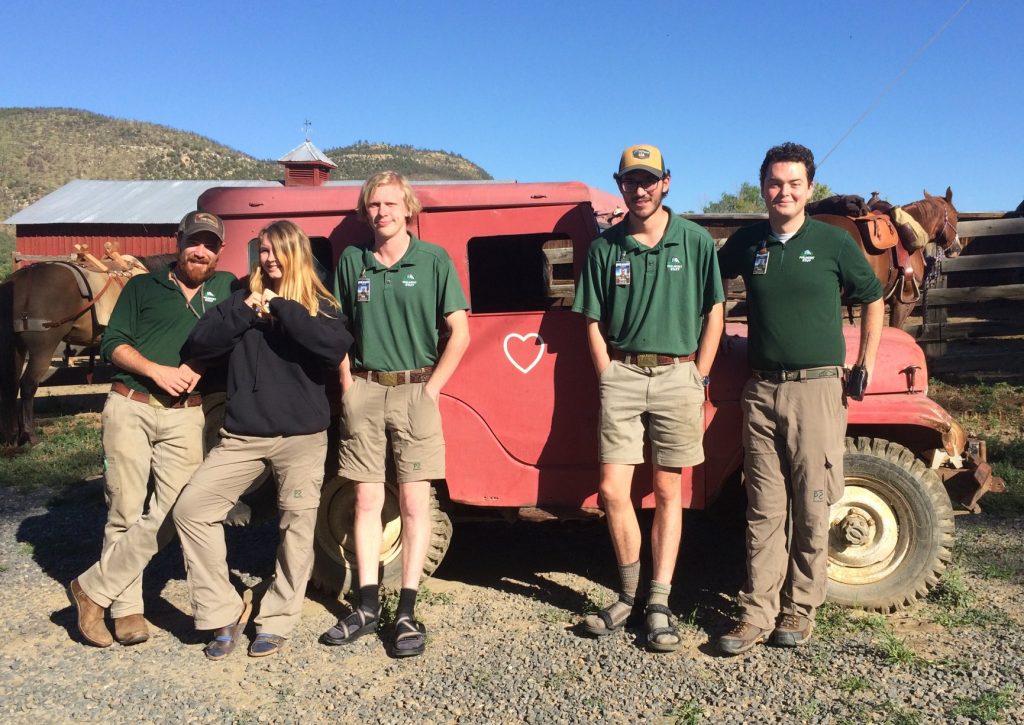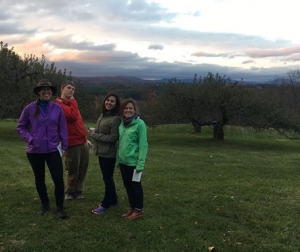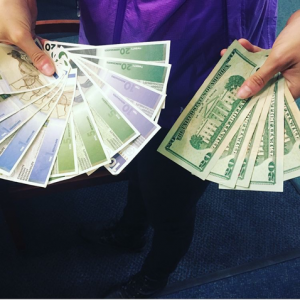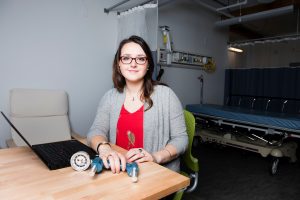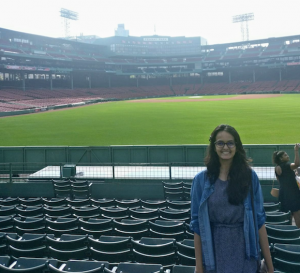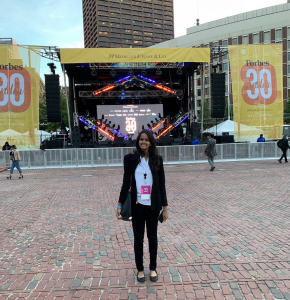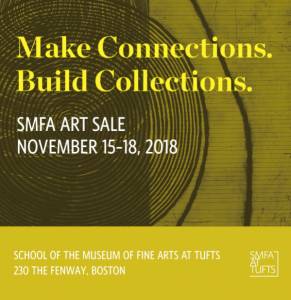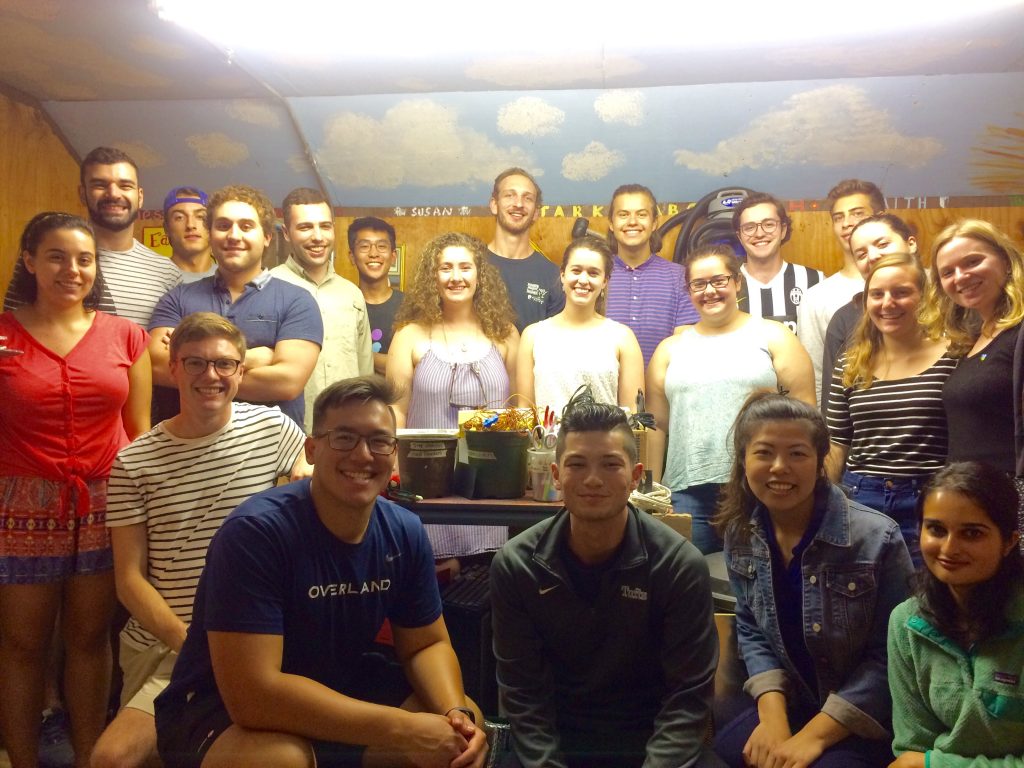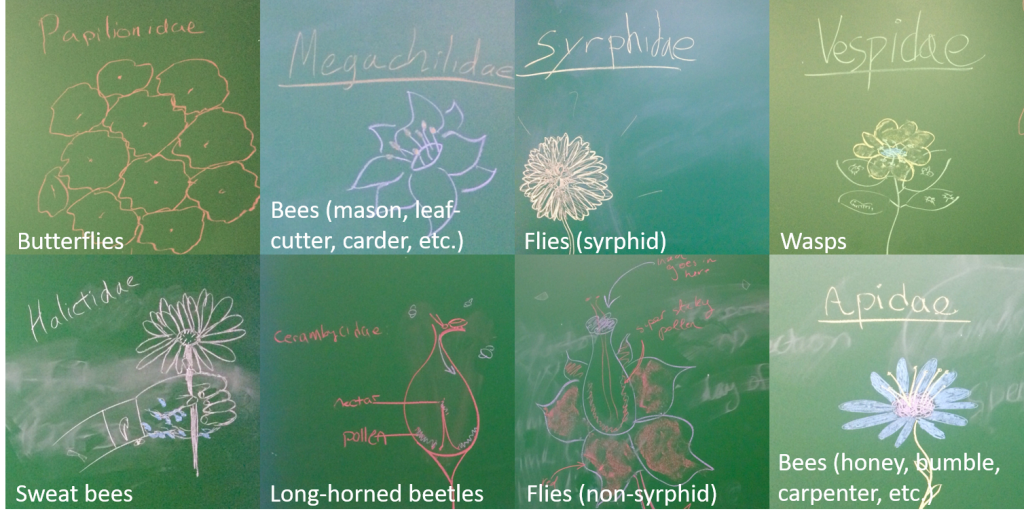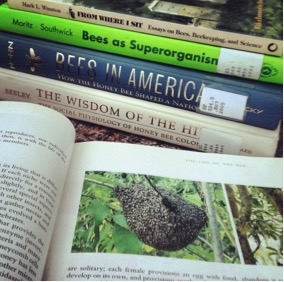Written by Ruaidhri Crofton, History and Museum Studies M.A. student
As a graduate student, much of your time will no doubt be spent attending classes or dedicated to other forms of research and study. However, being able to take what you have learned and apply it to “real world” scenarios through internships, fellowships, jobs, and other positions is another great learning experience that many students at Tufts will have the opportunity to engage in during their time at the university. Not only does this help to reinforce the information you have already learned through study, it also allows you to gain valuable new skills and knowledge outside of the classroom. This summer I was lucky to have an opportunity to do just that while working as the Camp Director of the Chase Ranch Museum in Cimarron, New Mexico. As someone pursuing a master’s in History and Museum Studies, this seasonal position provided me with a great way to put many of the topics I had covered in classes to use, while simultaneously learning about the rich history of an often overlooked yet incredibly unique historic site in the rural Southwest.

When many people think of New Mexico, they likely picture a hot desert. Although the state is certainly is warm and often arid, much of its land has been used for ranching and agriculture for a considerable portion of its history. This was particularly true in the Northeast corner of the state where the small village of Cimarron, population 903, is located. Having grown up in another town just an hour and a half or so south of here, I am used to “small town living”. However, living in Cimarron for three months was quiet even for me. There’s everything you may need: a couple of gas stations and restaurants, a few stores, a hotel, and a three-officer police force, but it’s certainly different from life in a city like Boston. Despite its size, Cimarron was once a bustling stop on the Santa Fe Trail, and home to trappers, ranchers, cowboys, miners, loggers, outlaws, and railway workers. Today, its main claim to fame is Philmont Scout Ranch—a 140,000 acre wilderness in the Sangre de Cristo Mountains run by the Boy Scouts of America (BSA) and visited by thousands of Scouts on hiking trips annually. In addition to their wilderness programs, the BSA also runs four museums on the property tasked with sharing the history of the area, including the one where I had the privilege of working this summer.
On a dirt road three miles outside of town sits the headquarters of the Chase Ranch. Originally hailing from Wisconsin, Theresa and Manly Chase first moved to the New Mexico Territory in 1867 and eventually purchased 1,000 acres of land in 1869 where their family would remain for the next 143 years and four generations. At their height, Manly and Theresa were managing an extensive cattle, horse, and sheep operation on over one million acres of land, in addition to running a dairy, a coal mine, and tending to an orchard of 6,000 fruit trees producing over 500,000 pounds of fruit annually. In the generations that would follow, the Chases continued their legacy of ranching and contributing to the Cimarron community. Gretchen Sammis, the last member of the Chase family to live on the ranch and the great-granddaughter of Manly and Theresa, was herself an award-winning rancher in addition to being an accomplished soil and water conservationist, teacher, and sports coach. Awarded Cattleman of the Year in 2008, both Gretchen and her Ranch Manager, Ruby Gobble, were also inducted into the National Cowgirl Hall of Fame in 1982 and 1996 respectively.
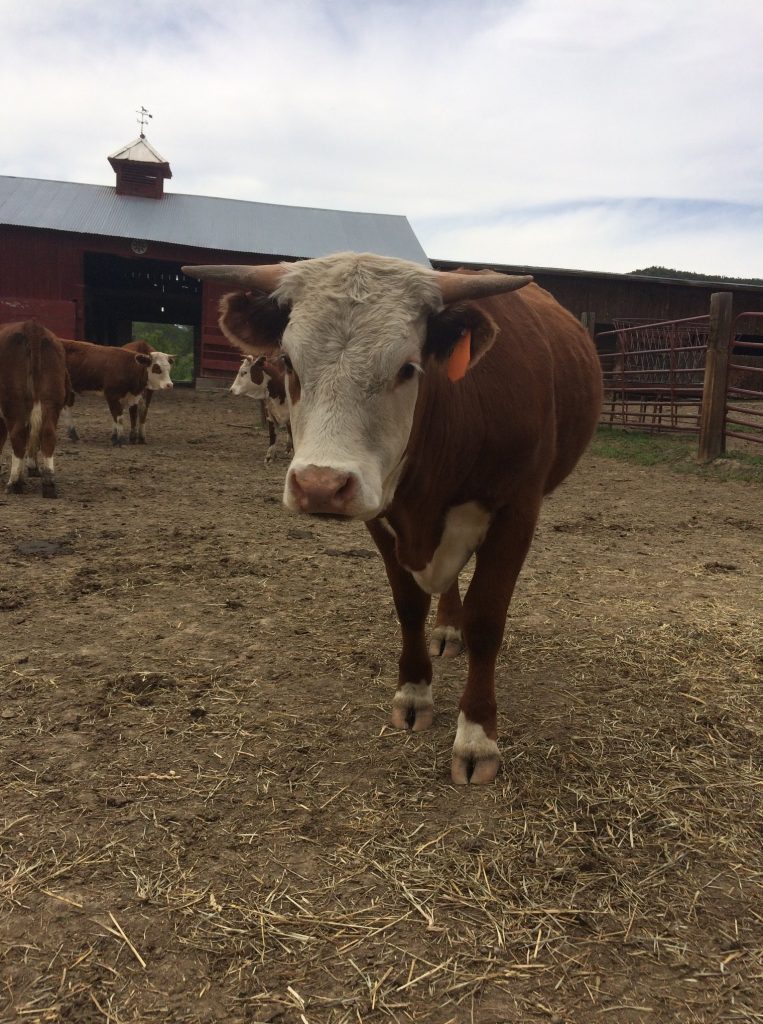
Following Gretchen and Ruby’s deaths in 2012 and 2013, ownership of the ranch was passed on to the Chase Ranch Foundation, which today partners with Philmont Scout Ranch in a 50 year lease to open the now 11,000 acre ranch to Scouts on trek, maintain operation of the property as an active cattle ranch, and transform the historic 1871 ranch house into an educational museum open to all. This summer it was my task to ensure that the historic house museum was open for the 5,000 plus Scouts and other visitors we hosted over the course of three months. This included, among other things, training staff, leading tours, historic research, developing education programs, artifact care and cleaning, gardening, and occasionally helping to corral a runaway cow or two! As you can imagine, this was no small task, and I was very thankful to have a staff of fantastic colleagues to support the museum’s mission along the way.
I was also thankful for the insight professors and classmates in both the History and Museum Studies departments at Tufts had equipped me with throughout two semesters of coursework examining collections care, Southwestern history, and museum education, among other topics. Thanks to this baseline of knowledge, throughout my summer I gained experience in putting this information to work “in the field,” as well as a considerable amount of additional knowledge that helped me better understand best practices and approaches to museums and management. It was an incredible opportunity to not only work in this special place, but to also build upon what I had learned in the months leading up to it. Although certainly not everyone has an interest in working at a remote historic house museum, there is no shortage of opportunities that will fit your specific interests and goals, regardless of your program, and a similarly extensive number of resources at Tufts to help you find them. So do some research! You never know what cool experiences you might be able to find.
